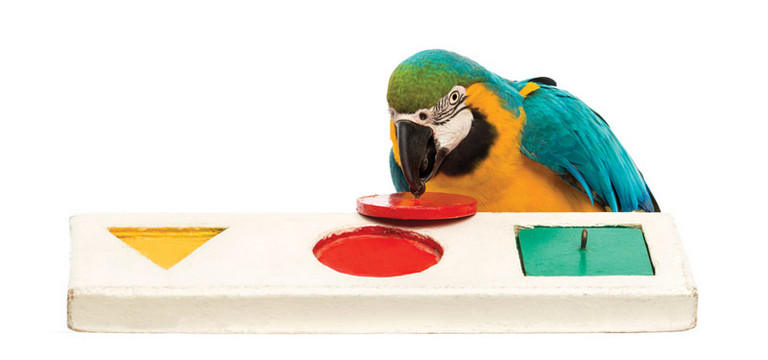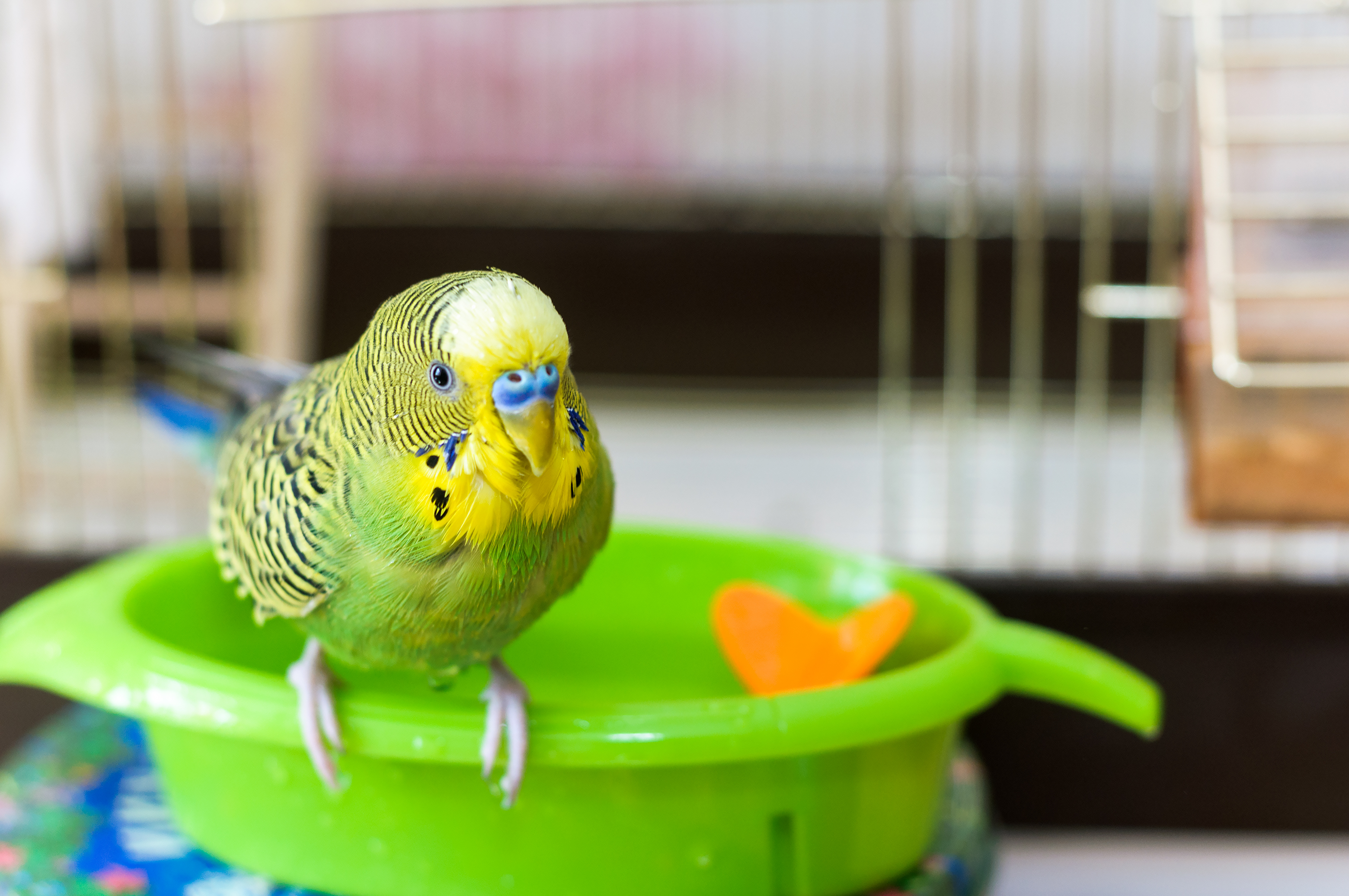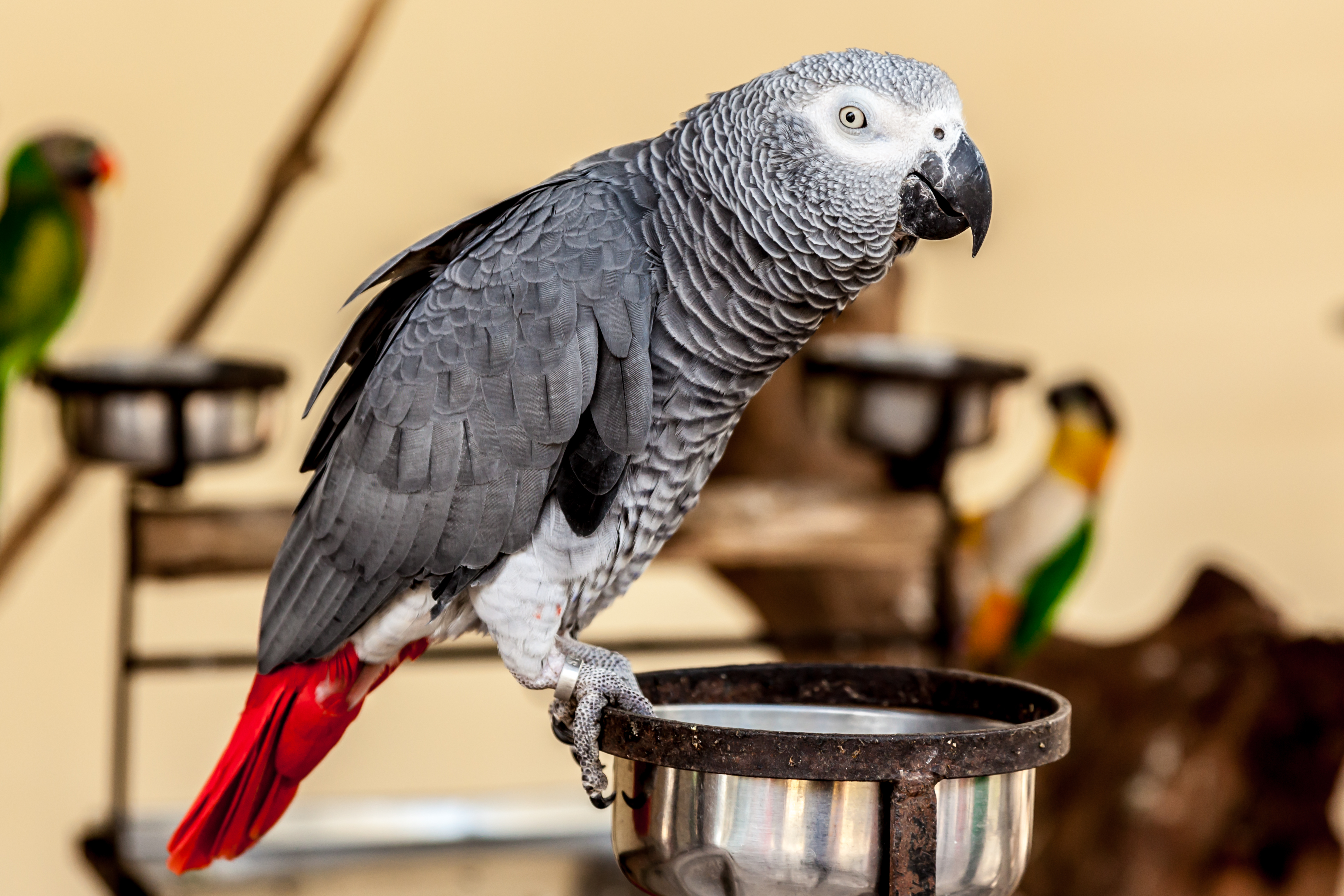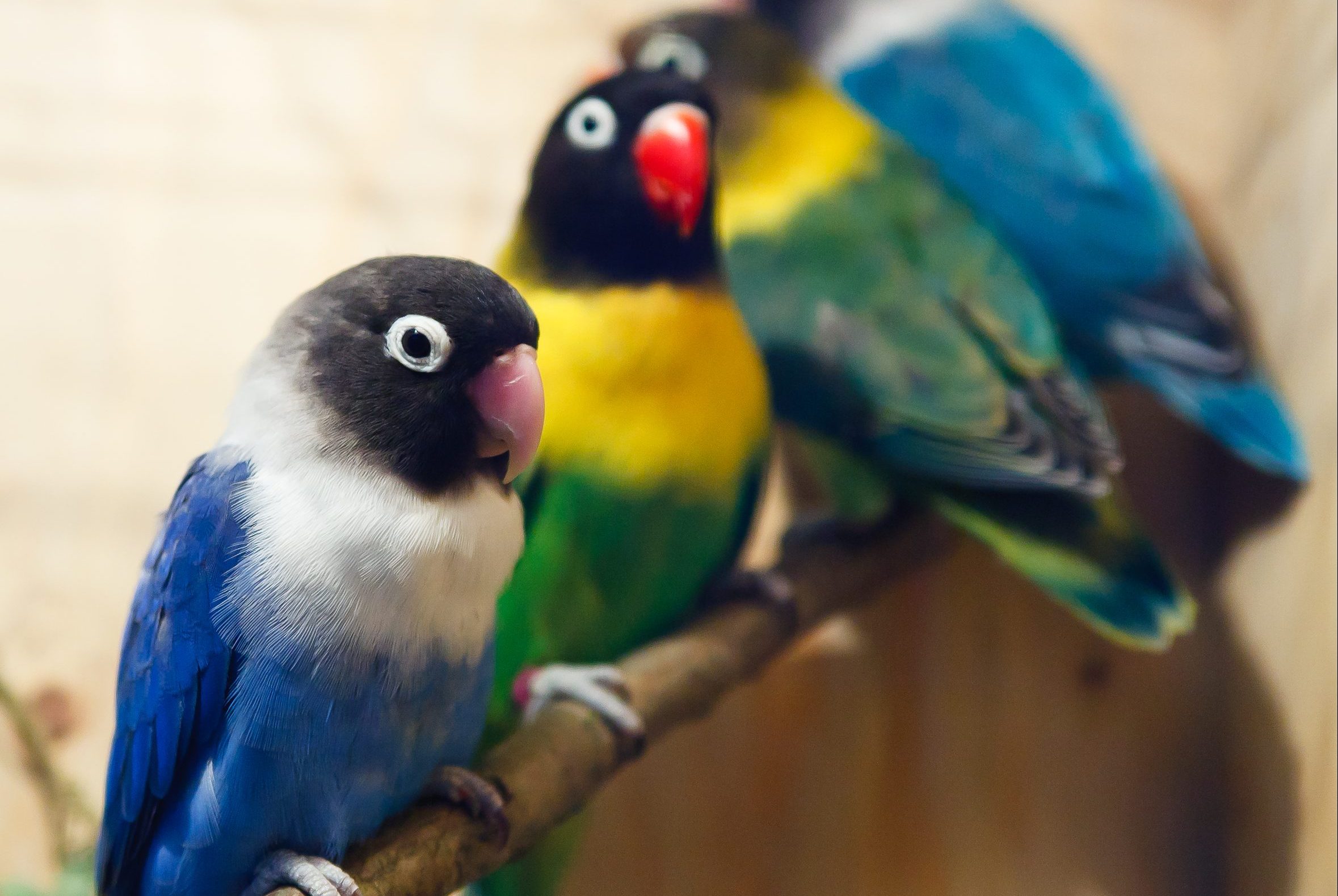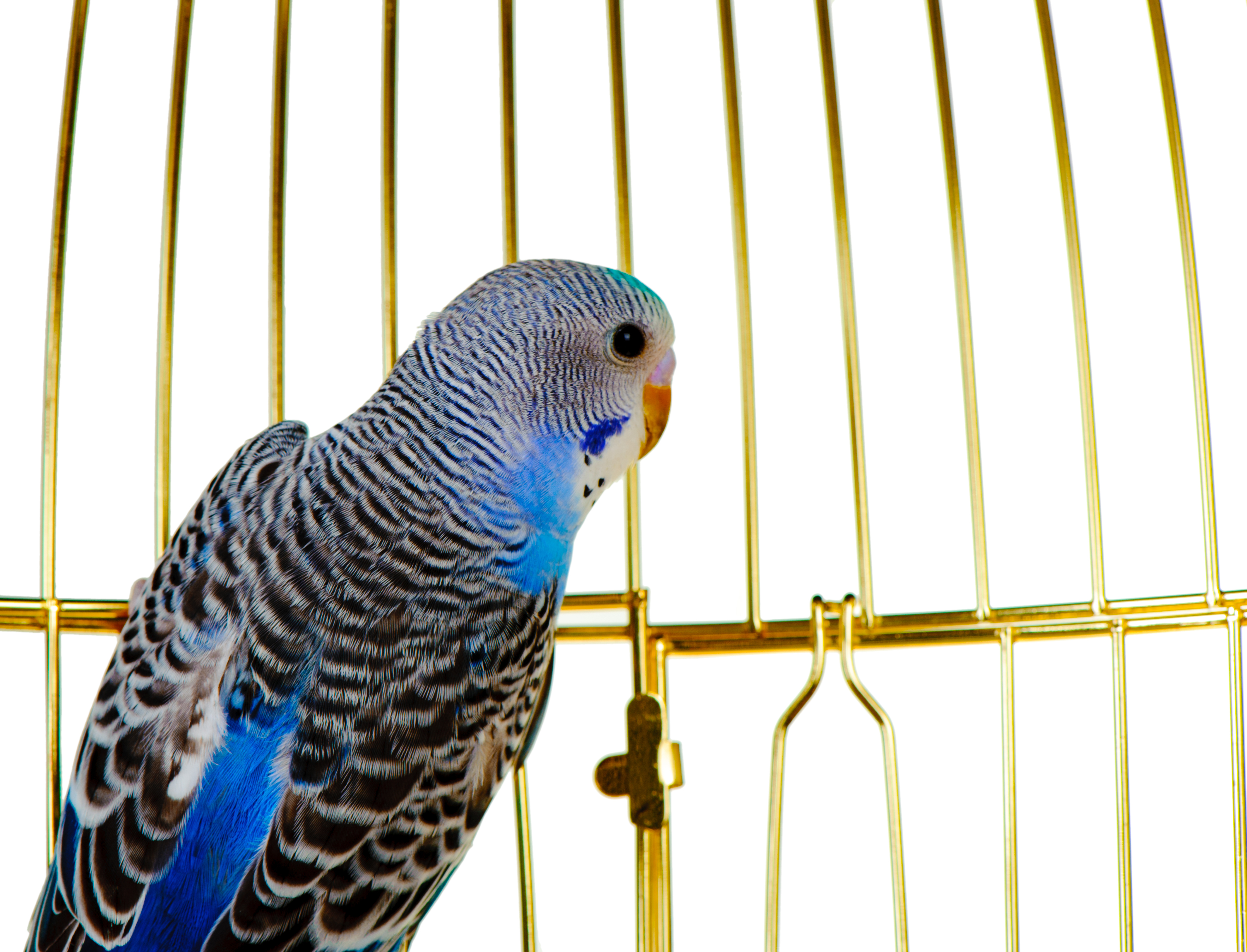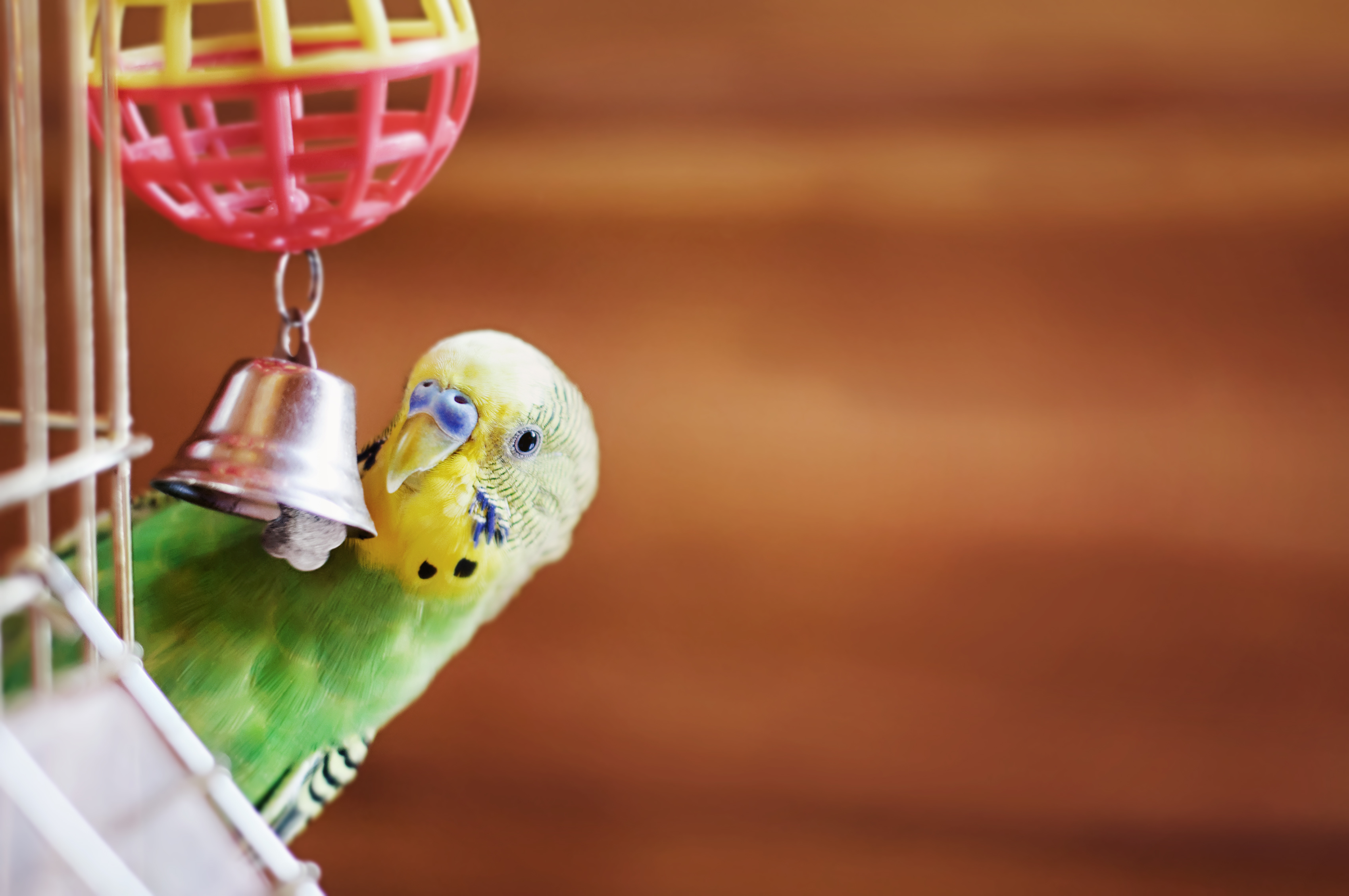Bird Training Products Have Come a Long Way
Pet Age Staff //October 1, 2013//
Multiple species of parrots have an IQ equivalent to that of a 2-year-old child, which makes training them to perform simple, or even complex, behaviors a breeze if the owner possesses the correct tools.
There are two basic training categories, behavioral and trick. While trick training is a fun way for an owner to bond with their bird, it is considered optional. Behavioral training, on the other hand, is mandatory. 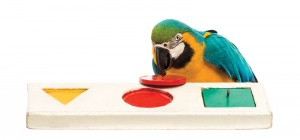
Making sure a parrot can be handled safely by anyone, be it a timid bird lover, or a veterinarian, is of the utmost importance. Although the two types of training vary in importance, training process does not. Positive reinforcement is the most effective training style and can only be improved with the use of proper tools.
Getting Started
Training should always start early in life and with the basics.
For example, a well-rounded, behaved parrot should know the ‘step-up’ command in order to make vet visits or handling during the aggressive breeding season safe.
Donna Garrou, founder of Bird Stuff, Inc., recommends some tools to assist in teaching the ‘step-up’ command.
“A long straight perch works well, as does a new product by Caitec called, The Percher,” she said. “This plastic perch/stand can be configured in a number of different ways, including as a step-up stick. It also makes a simple t-stand for training, which is great place to teach step-ups.”
One training tool commonly used when training other companion animals, such as dogs or cats, is the clicker. Birds are no exception to its effectiveness. Garrou has found much success in offering this tool to her customers.
“One of the things I encourage all of my customers to try is clicker training,” she said. “To help clients learning about clicker training, I recommend the Karen Pryor ‘Clicker Training for Birds’ kit. It includes a targeting stick, instructions (‘training the trainer’) and even a few treats.”
Garrou also carries training books and DVDs in her store.
“I carry several DVDs from behaviorist Barbara Heidenreich, and especially like, ‘Training your Parrot for the Veterinary Exam,’ because it also teaches some basic subjects like getting your bird to step up to strangers and getting into a carrier,” Garrou said.
Barbarah Heidenreich is the founder of Barbara’s Force Free Animal Training and has years of experience training all types of animals, but has a particular affinity for parrots. Her website features training aids such as training sticks, perches, books and DVDs. As much enjoyment as she gets from teaching parrots entertaining tricks, she also focuses on changing behavioral issues with positive reinforcement.
“All of my products are all about helping people train their parrots and solve behavior problems,” she said. “My goal is for people to have an amazing relationship with the birds in their lives. And I know that kind and gentle training methods can help them attain that goal. For this reason, I have produced a variety of instructional DVDs, written two books and also teach parrot training workshops around the world.”
Barbara’s Force Free Animal Training’s website was expected to be featuring various types of training sticks and stations as of last month.
Positive Reinforcement
Being able to provide customers with the correct training tools is important, however, making sure reinforcement is given for correct behavior is just as crucial. Motivators, like a parrot’s favorite treat or toy becomes an integral piece of the training puzzle.
Heidenreich explains that starting a parrot off with eatable reinforcement begins the association between correct behavior and reward, but should be interspersed with verbal praise.
“Treats are an obvious reinforce for good behavior,” Heidenreich said. “However, most treats on the market are quite large, so I use them to reinforce behaviors that might be particularly difficult for the parrot, as opposed to train a new behavior.”
When food rewards are necessary, Heidenreich frequently uses the Foraging Box by Kaytee because it makes the bird work for its reward. Treats are hidden inside the cardboard box, allowing the parrot to rip apart the toy and work for the treats inside.
For birds that may not be particularly food motivated, there are many intriguing toys that are intended to grab their attention. Variety is necessary when using toys as motivators, because if a bird is bored, it will not want to work for its reward.
“One of the important things about toys and enrichments is that it needs to be constantly changing to keep it interesting for your parrot,” Heidenreich said. “This also prevents them from focusing on undesired behaviors such as vocalizing for attention or feather damaging behavior.”
Regardless for what a customer’s bird is motivated, rewarding them for correct behavior is essential for marking the connection between behavior and reward.
“When parrot owners get in the habit of positively reinforcing good behavior, the result is a well behaved, interaction and fun companion parrot,” Heidenreich added.
Toy Selections
Erik Christopher, the president of Mango Pet Products, makes sure his shelves are stocked with toy options to motivate any parrot.
“At Mango Pet Products, Inc., we have a variety of interactive toys from basketball set of varies sizes for various size birds to scooters and skateboards,” Christopher said.
Mango’s Basketball Sets come in mini, small and large to accommodate all species and a clicker and training guide may be purchased in addition to the set to ensure that training sessions are not only fun, but productive. These basketball sets come with clickers included if purchased from Wyld’s Wingdom’s webpage.
Wyld’s Wingdom is one of the largest wholesale avian product distributors in the nation, providing business with avian products such as toys, treats, cage stands, play gyms and training aids.
For the past 25 years, Wyld’s Wingdom has worked in concordance with smaller retailers in choosing the correct products for their stores and providing them with the most up to date information on what new and exciting in the avian world.
Mary Wyld, owner of Wyld’s Wingdom, prides herself in keeping current with the latest trends in parrot training, such as books and guides, DVDs, audio and video tapes, perches, and even skateboards.
– Erin Salley
